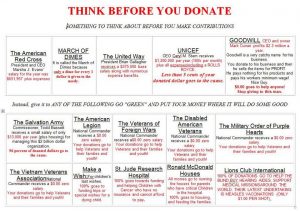Hi everyone, before I launch into today’s topic, two announcements. First, I’m co-authoring a book about how we can reset the funder/grantee relationship to minimize power dynamics and allow us all to be more effective at our work and less likely to curl into the fetal position under our desks, rocking and weeping to 80s rock ballads. I’m writing it with Jane Leu and Jessamyn Shams-Lau, and we’re trying to raise $9,600 on Kickstarter by the end of this month. Please pitch in $5, $20, $50, or…$9,600. You’ll get cool prizes such as getting your name in the book for a donation of $5. For $50, you get a t-shirt and the book. For $200, you’ll also get a hand-made unicorn. For $9,600, I will personally fly to your office anywhere in the US and put on a puppet show about the horrors of restricted funding.
Second, last month I issued the #OpEdChallenge, which is simple: Write an op-ed related to your mission and get it published before the end of 2016. We nonprofits must be more vocal, especially in light of the political climate. Some colleagues are actually taking on this challenge! Look: “Seattle must address root causes of racial disparities.” And “Stand with your Muslim neighbors and fight bigotry.” You are awesome. If you’ve successfully taken this challenge, please let me know. Your op-ed may get mentioned here.
***
I have not written much on NWB about disability. Mainly because I am not an expert on it, and I’m afraid that I’ll make serious mistakes and cause offense. The world is complex, and there are so many ways for us to screw up. I’ve done it at least once already while researching for this post. I asked the NWB Facebook community for tips, writing “Please send in things we should all be aware of, and any pet peeves you have, especially if you work with individuals with disabilities or have a disability.”Continue reading →





